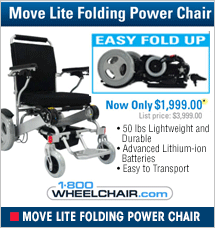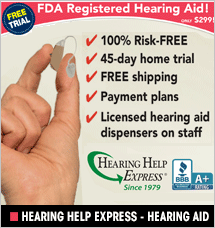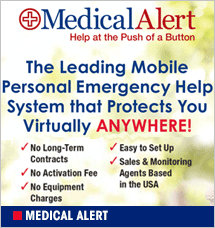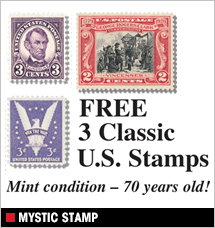What You Should Know to Avoid the Scams and Scoundrels that Target Seniors

Keeping track of the latest scams is a lot like playing whack-a-mole. Even as we learn what to watch out for regarding one scam, the scoundrels are busy developing several more ways to steal from you. Often, the people in the crosshairs of thieves are among the most vulnerable, that is, seniors. Here are just a few.
New Medicare Cards: They’re Real but Beware the Scam
Across the country, Medicare and Social Security recipients will soon begin receiving new Medicare cards in the mail. That’s true. But there’s also a scam you need to watch for. If the phone rings and the caller claims to represent Medicare or Social Security, beware. The caller may tell you your file must be updated before the card can be issued and they may add that your benefits are in jeopardy if you don’t cooperate. Then the caller asks you to verify or provide personal banking information and possibly more. That information hands them the ability to drain your assets.
Callers may be aggressive, calling several times a day, possibly threatening you with adverse action. The hope, of course, is to wear you down.
Another version of the scam is that the caller will tell you are due for an upgrade of your benefits, if you allow the caller to update your file. And yet another scam includes telling you there is a fee for your new card.
The Social Security Administration and the Center for Medicare and Medicaid Services want to assure you, they will not call you with a request for personal information. If you get such a call, hang up immediately. Don’t engage callers in conversation. It will be tempting to berate them for attempted theft, but just hang up.
Centers for Medicare and Medicaid Services
7500 Security Boulevard
Baltimore, MD 21244
Social Security Administration
Office of Public Inquiries
1100 West High Rise
6401 Security Boulevard
Baltimore, MD 21235
(800) 772-1213
The operators of this scam are engaged in criminal activity. Citizens who receive such calls are also encouraged to report them to the FBI as follows:
Federal Bureau of Investigation
Minneapolis Office
1501 Freeway Boulevard
Brooklyn Center, MN 55430
(763) 569-8000
To find out when your new card is likely to arrive, here’s a list from Medicare.gov
https://clark.com/health-health-care/new-medicare-cards-mailed-dates/
Online Prescription Drug Deals
Ordering medications online can be a good, legitimate way to pay less for prescription drugs. But it can also be a scam. Sites that offer significantly “better prices” may not only be fake, but the drugs you receive from them may be harmful. One pharmacist, Ira Katz, says that by definition, prescription drugs are dangerous, which is why they’re controlled. When you buy drugs online from unknown sources, they may not have the same strength you have been prescribed. Or the medication may be outdated, or worse, a placebo, according to Katz.
That’s not to say that all online drug sites are bad. Here are some sites where you should be able to buy Rx drugs online with confidence. Some require membership, such as AAA.com. And some have income limits.
Publix.com – 14 day supply of select antibiotics for FREE.
Walmart.com – 30-day supply of select generic drugs for $4 or a 90-day supply for $10.
Target.com – 30-day supply of select generic drugs for $4 or a 90-day supply for $10 .
NeedyMeds.org – Free drug discount card accepted at over 60,000 pharmacies.
Eli Lilly – Seniors with income of less than $18,000 a year as singles or $24,000 as couples may qualify for a LillyAnswers discount card, and a 30 day supply of certain drugs. You can use the card at CVS, Longs and Wal-Mart pharmacies. Call 1-877-RX-LILLY to apply.
The Medicine Program – This is for people having below $60,000 of income, and no health insurance. Call 573-996-7300 and ask for an application. Or, check the Phrma Web site Phrma.org for a list of drug companies.
TheAssistanceFund.org – This program non-profit can help you pay for medication in
dire situations, whether or not you have insurance.
Funeral and Cemetery Scams
Here are two separate scams that the FBI is warning seniors about.
- Criminals scour obituaries and call or attend the funeral services for people they don’t know, with the goal of taking advantage of the grieving parties. The scammer will claim to have an outstanding debt owed to them by the deceased, in an effort to get relatives of the deceased to settle the fake debt. Of course it’s entirely possible that your loved ones who pass away leave unsettled debts and some may not be recorded anywhere. But thieves are counting on your vulnerability. If the “creditor” has no proof and there’s no reason to believe they are telling the truth, you need to ignore them. If they become a problem, refer them to your attorney.
- Also, though most funeral homes are honorable, some prey on grieving families, attempting to capitalize on the fact that many people aren’t familiar with the cost of funeral services. The scam occurs when someone at the funeral home adds unnecessary charges by insisting on extra features or services that aren’t required, or by trying to “guilt” family members into buying an expensive casket.
You can avoid this scam by doing some research before agreeing to what is suggested by the funeral home. There is an abundance of information online about average costs. The Federal Trade Commission (FTC) provides an extensive checklist: https://www.consumer.ftc.gov/articles/0301-funeral-costs-and-pricing-checklist
Anti-Aging Products
The late night TV shows that many older people watch feature ads that promise solutions to signs of aging and other physical problems. The National Council on Aging states that many elderly who are lonely and bored fall victim to such scams advertised on TV and online, such as on Facebook. Some include expensive treatments that can be harmful, and others that, while still expensive, have no effect at all other than draining your bank account.
Some of these scams offer free trial offers of products, such as anti-wrinkle creams. You’re probably familiar with the “free offers” that require you to sign up to get the freebie, and they assure you, you can cancel anytime. But let’s face it. Most of us forget to cancel, or find it very hard to do.
Avoid this scam by remembering what you tell your kids… if it sounds too good to be true, it surely is. You can read more about this type of scam on a site called Clark.com, or by clicking here: http://bit.ly/2EAihjE
Teresa Ambord is a former accountant and Enrolled Agent with the IRS. Now she writes full time from her home, mostly for business, and about family when the inspiration strikes.




























































